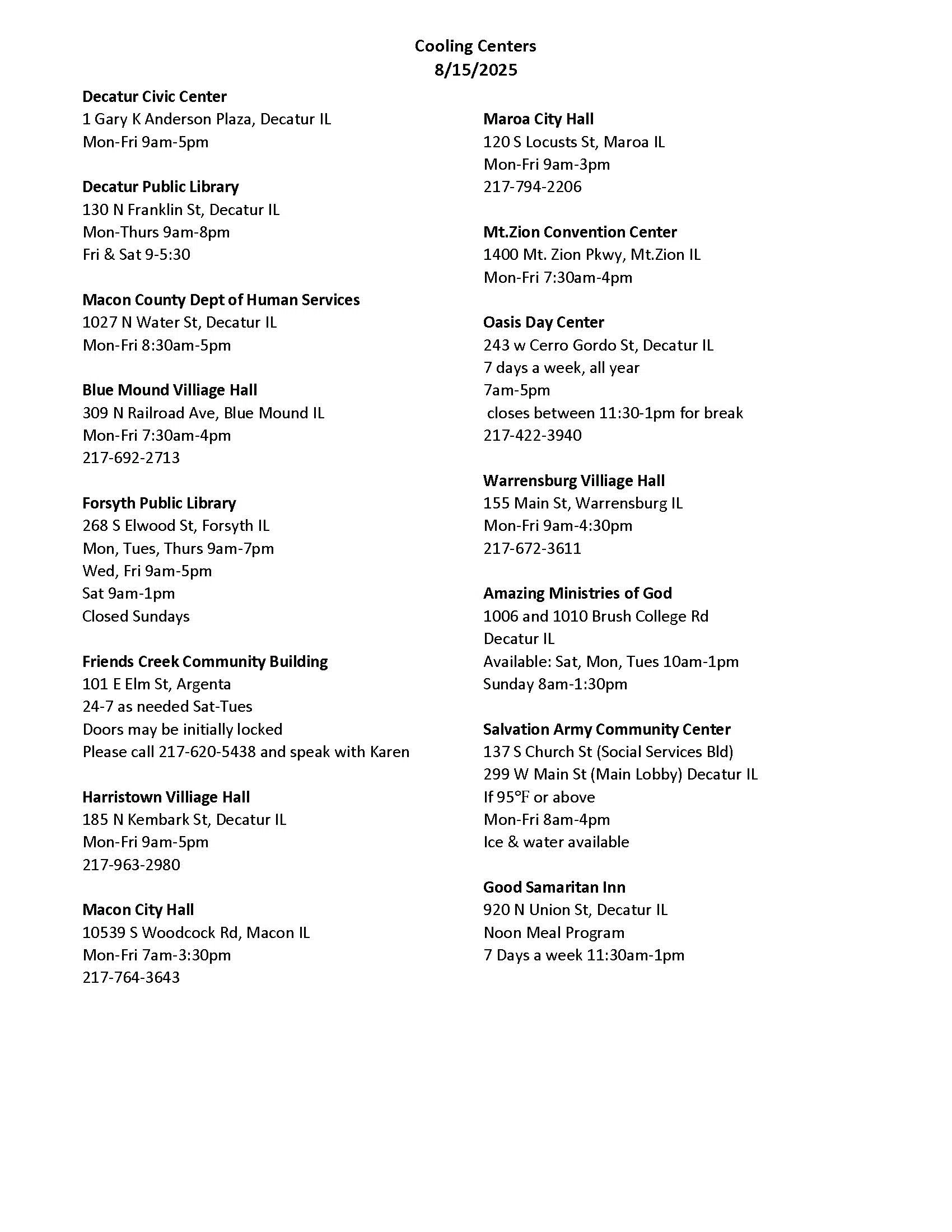
nakon17213@gmail.com / Depositphotos.com
August 15, 2025 – Authorities from the Macon County Emergency Management Agency have released a list of cooling centers that will be open to escape the heat this weekend into early next week.
 Heat related illnesses increase significantly during extreme heat and high humidity events. Drink plenty of fluids, stay in an air-conditioned room, stay out of the sun, and check up on relatives and neighbors. Do not leave young children and pets in unattended vehicles. Car interiors will reach lethal temperatures in a matter of minutes.
Heat related illnesses increase significantly during extreme heat and high humidity events. Drink plenty of fluids, stay in an air-conditioned room, stay out of the sun, and check up on relatives and neighbors. Do not leave young children and pets in unattended vehicles. Car interiors will reach lethal temperatures in a matter of minutes.
According to the National Weather Service, heat is one of the leading weather-related killers in the United States, causing hundreds of deaths per year. Especially for vulnerable populations, including pregnant women, children and the elderly, extended amounts of time in unusually hot weather can cause several health issues, including heat exhaustion or stroke.
